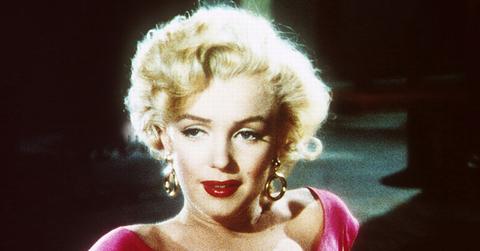 NEWS
NEWS'Depressed & Disillusioned' Marilyn Monroe's Visit To Mental Institution Exposed

Oct. 2 2019, Published 2:30 p.m. ET
Not long before her death in 1962, Marilyn Monroe became so disillusioned that she was brought to a mental institution against her will, a new episode of “The Killing of Marilyn Monroe” podcast reveals.
The shocking seventh episode of the series details the late Hollywood icon’s downward spiral brought on by depression and her increasing reliance on prescription drugs, experts claimed.
“I think that her pill take upped in those final months, but it wasn’t new to her,” entertainment journalist Charles Casillo claimed. “By then, she had such a high resistance.”
Following her divorce from Arthur Miller in 1961, Casillo said Monroe’s friends became “alarmed’ as she entered into “one of the deepest, darkest depressions” of her life. The podcast's narrator added that Monroe was “committed” to a mental institution for her unstable health issues.
Monroe was told by professionals that she would be brought to the hospital for a “nice, long rest” – but in reality, she was checked into a mental institution’s floor that treated the “dangerously insane,” the journalist furthered.
Want OK! each day? Sign up here!
The actress's nightmarish visit involved “electroshock,” biographer Danforth Prince claimed in the episode.
Monroe then desperately begged her ex, Joe DiMaggio, to help her get out.
“She was committed to a mental institution, straight-jacketed, the whole bit, and she was just completely like a prisoner,” Casillo claimed.
As Radar readers recall, DiMaggio proved to be the one man in Monroe’s life who routinely rescued her in her darkest moments. The Yankees legend “dropped everything for her” at this time, said the narrator.
“He got her out of there. He got her out the next day,” Casillo explained.
In the final year of her life, Monroe showed up "less and less" to the set of Something's Got To Give. She cracked from the pressure of maintaining her Hollywood image and was released from the project.
Ultimately, the troubled actress saved her career by giving defiant interviews to major outlets like Vogue and Cosmopolitan, the narrator claimed. In the final weeks of life, Monroe secured a new contract with 20th Century Fox to move along with the film.
“Other than all that other stuff, she was in her happiest moods in the last weeks of her life,” author Fabulous Gabriel said.
As Radar readers recall, it wasn’t long before Monroe found herself drugged and sexually assaulted during her tumultuous final weekend of her life. She mysteriously died on August 5, 1962.
For more details about Monroe’s turbulent last days, tune into new episodes of “The Killing of Marilyn Monroe” each week. The series is brought by the same creators of the Natalie Wood podcast, “Fatal Voyage: The Mysterious Death of Natalie.” To listen to episode seven, download and stream everywhere now.


